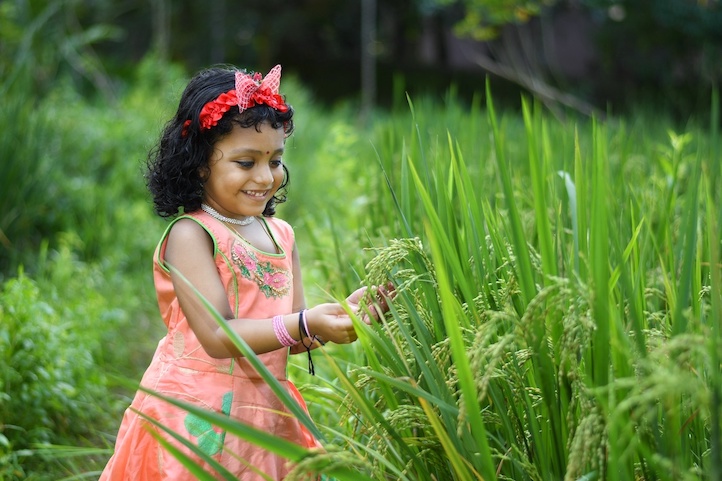Every year, on October 11th, the world observes the International Day of the Girl Child. This day serves as a poignant reminder of the need to prioritize and promote the rights and well-being of girl children globally. In a nation as diverse and culturally rich as India, this observance carries significant weight, highlighting the importance of nurturing gender equality within the family unit. Beyond schools and society, the family plays a fundamental role in shaping the values, beliefs, and attitudes that define a girl child’s journey toward empowerment. In this article, we explore the pivotal role of Indian families in fostering gender equality and empowerment for girl children, with a focus on educating parents and caregivers about gender-sensitive parenting.
The Significance of International Day of the Girl Child
International Day of the Girl Child, celebrated annually on October 11th, underscores the need to challenge gender biases and discrimination that limit the potential of girl children worldwide. It’s a day to advocate for girls’ rights, address inequalities, and promote their overall well-being. In India, where deep-rooted traditions and social norms often intersect with progress, this day serves as a poignant reminder of the collective responsibility to create a more equitable future.
The Role of Families in Fostering Gender Equality
The family is the first social environment a child encounters. It’s where values, attitudes, and behaviors are initially learned. For girl children, the family’s influence is particularly critical. Here are some key aspects of fostering gender equality within Indian families:
Education and Awareness
Parents and caregivers play a pivotal role in fostering gender equality within the family. To embark on this journey, it is essential for them to be educated about the profound importance of gender equality and the multitude of benefits it offers. By understanding the significance of this concept, parents and caregivers are better equipped to guide their children effectively. Workshops, seminars, and awareness campaigns dedicated to gender equality can serve as valuable platforms for learning and growth. These initiatives not only impart knowledge but also encourage introspection, prompting parents and caregivers to reflect on how their actions, words, and attitudes influence the development of girl children.
Challenging Stereotypes
In India, traditional gender stereotypes have often confined both girls and boys to predefined roles and expectations. Fostering gender equality necessitates a proactive effort to challenge and break these age-old stereotypes. Within families, parents and caregivers must actively encourage girl children to explore a wide array of interests and passions. Whether it’s sports, arts, science, or any other field, girls should be free to follow their inclinations without encountering limiting gender roles or societal expectations. This approach encourages the development of well-rounded, confident individuals who are not held back by outdated norms.
Promoting Equal Opportunities
One of the fundamental tenets of gender equality is ensuring that all children, regardless of their gender, have equal access to educational, extracurricular, and career opportunities. Parents and caregivers play a vital role in this by actively supporting the ambitions and aspirations of girl children. It involves nurturing an environment where girls are empowered to dream big and pursue their goals without encountering prejudice or discrimination. By providing equal opportunities and unwavering encouragement, families can help girls realize their potential and contribute meaningfully to society.
Open Communication
Effective communication is the cornerstone of fostering gender equality within families. Parents and caregivers must create an environment where open and honest discussions about gender-related issues are not just tolerated but actively encouraged. Girls should feel comfortable sharing their experiences, concerns, and aspirations with their parents or caregivers. Through such dialogues, families can address any challenges or biases that may arise and provide girls with guidance and support to navigate them.
Setting Positive Examples
Parents and caregivers serve as the primary role models for children. Therefore, it is imperative that they set positive examples of respectful and equal partnerships within the family. When girls witness gender equality and mutual respect between their parents or caregivers, they are more likely to internalize these values and carry them forward into their own lives. These positive examples not only shape the girls’ expectations for their future relationships but also contribute to breaking the cycle of gender inequality within society.
Conclusion
International Day of the Girl Child serves as a powerful reminder that the journey toward gender equality begins at home. It is within the family unit that attitudes and beliefs are formed, making it a crucial space for nurturing values of equality and empowerment. By educating parents and caregivers on gender-sensitive parenting and implementing inclusive practices, we can create a supportive environment where every girl child can thrive, fulfilling her potential and contributing to a more equitable India. In doing so, we not only honour the spirit of International Day of the Girl Child but also pave the way for a brighter future for generations to come.


